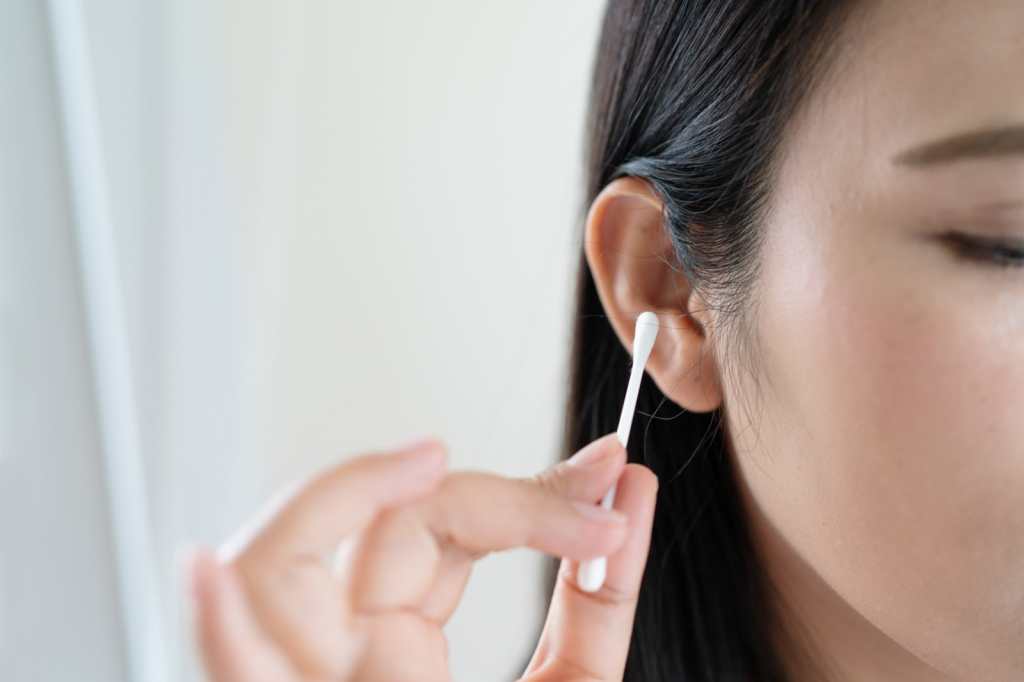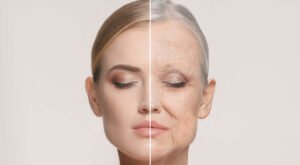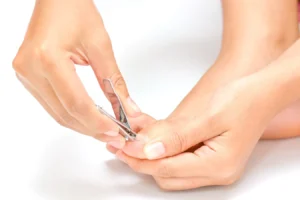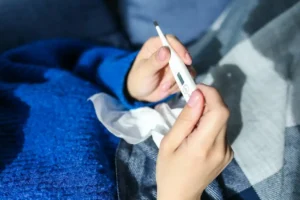Ear washing is recommended when you have pain, itching, or a feeling of blocked ears. Ideally, it should be done once a year.
Some people experience ear pain or ringing when they have a wax plug, which occurs when there is excess earwax in the ear canal. Experts recommend that when this occurs, you should visit a doctor to evaluate your symptoms and determine if a cleaning, such as a professional ear wash, is required.
Cerumen is a substance produced by glands and bases in the outer third of the external auditory canal. Its main function is to protect the ear from dust, bacteria, or microorganisms, says Heidi Morales, an otorhinolaryngologist.
“Wax, or cerumen, acts as a paste that traps foreign bodies, dust, or other substances that can be harmful to the ear. It also moisturizes the skin and is a link through which some antibodies are produced that protect us from infections,” adds otologist Carlos Figueroa.
What is the best way to clean your ears?
If you have symptoms of ear blockage such as hearing loss, pain, itching, or ringing, it could be a wax plug and requires cleaning. This can be done in three ways:
- Ear washing with a syringe: the doctor uses a special syringe to inject water into the ear at a certain pressure so that it bounces off the eardrum and collects the wax that is causing the discomfort. The water is usually warm so that it softens the earwax.
- Instrumental cleaning: where the doctor uses special equipment such as a microscope and special tweezers.
- Vacuum cleaning: Doctors use a type of vacuum to remove the wax.
Both specialists emphasize that none of these three ear-cleaning methods should be practiced at home since the inexperienced person could injure the eardrum. In addition, it should not be done if one has a perforated eardrum.

Cleaning ears with hydrogen peroxide
“Cleaning the ears with hydrogen peroxide is a viable option. It is recommended to put three drops every eight hours when the ear is blocked. What must be taken into account is that there is no tympanic perforation or infection. If this method does not unclog the ear, then you should go to the doctor,” says Figueroa.
To clean your head, turn your head 90 degrees to one side and apply the hydrogen peroxide little by little. Wait about 10 minutes and turn your head to let the liquid come out. Ideally, do this over a towel or a container so that the hydrogen peroxide falls.
Afterward, you can add a few drops of warm water to finish cleaning the ear. Finally, dry them well with a towel. Tilt your head from side to side to drain the water well.
For otolaryngologist Heidi Morales, adding hydrogen peroxide to the ears is not recommended . Any cleaning should be performed by a doctor to avoid injury to this organ.
When to clean or wash your ears
Doctors say that in some people, the glands produce more wax than can be easily removed, so they will need more frequent ear washing.
“Some allergic patients tend to produce more wax because the wax is to the ear what mucus is to the nose. That is when we are exposed to a lot of dust, the nose defends itself by sneezing and producing mucus so that microorganisms do not reach the lungs. The ear acts in the same way; if it detects that there is something that causes an allergy, it defends itself by producing more wax,” explains Figueroa.

People with diabetes or those who have recently undergone surgery may generate more wax, as the movements of the cilia that expel the wax outward become slower, so manual cleaning may be necessary.
“Cleaning is only done if you feel a blocked ear or other symptoms, such as itching and pain. Otherwise, it is not necessary to go to the doctor to have it cleaned,” says Morales.
When you try to clean your ear, you may push the earwax deeper and block the ear canal. Therefore, it is not recommended to insert any object to remove the wax. If you have any of the complaints described above, it is best to consult a doctor and not perform a cleaning at home.
People who produce a lot of earwax will require cleaning every three months or so, while others may need it once a year. Elderly patients may need it every six months.























+ There are no comments
Add yours